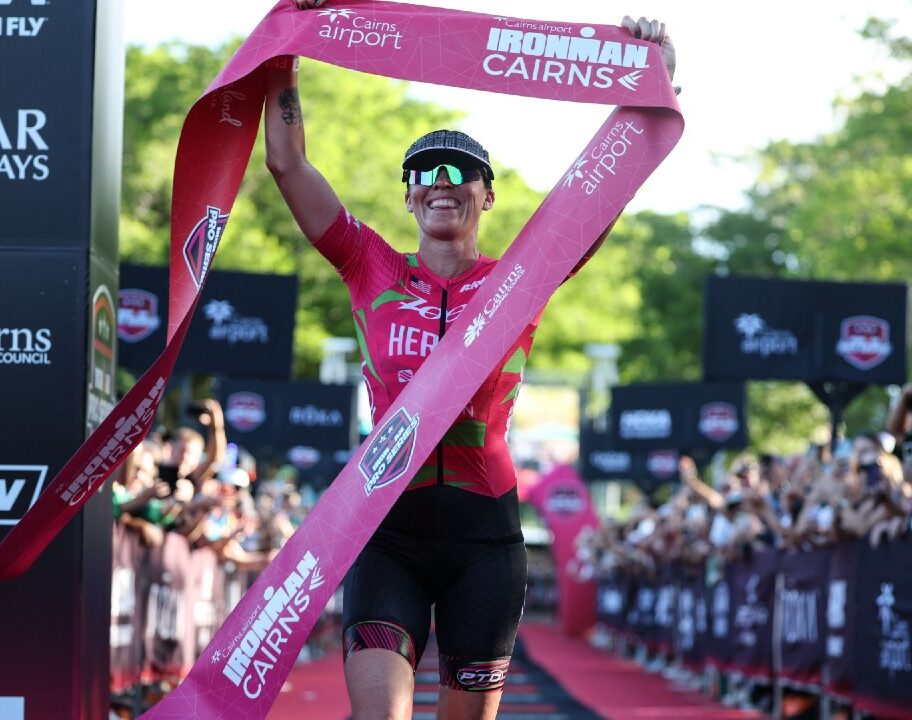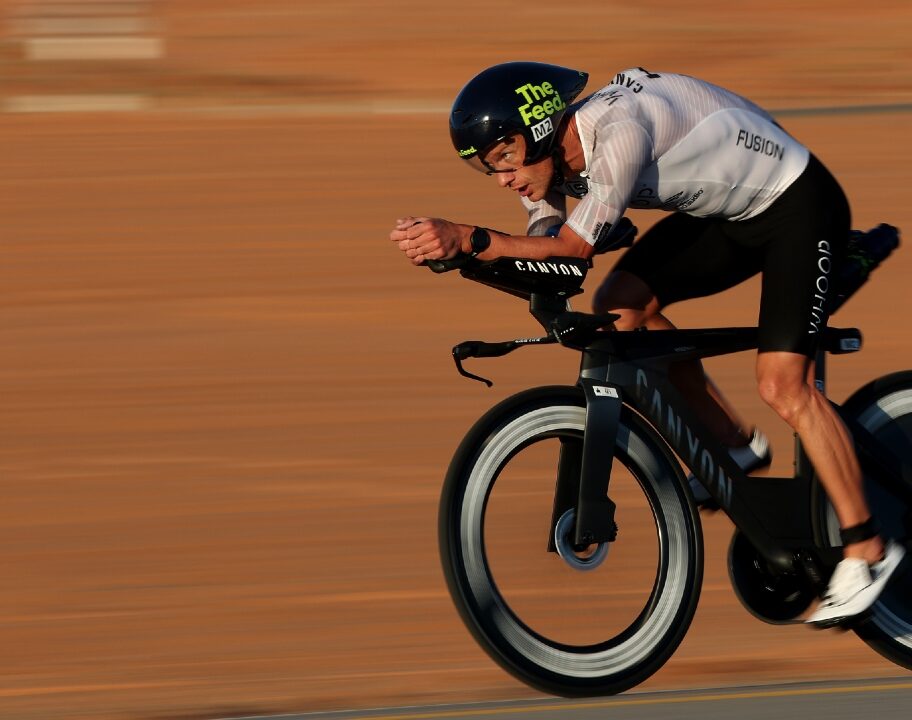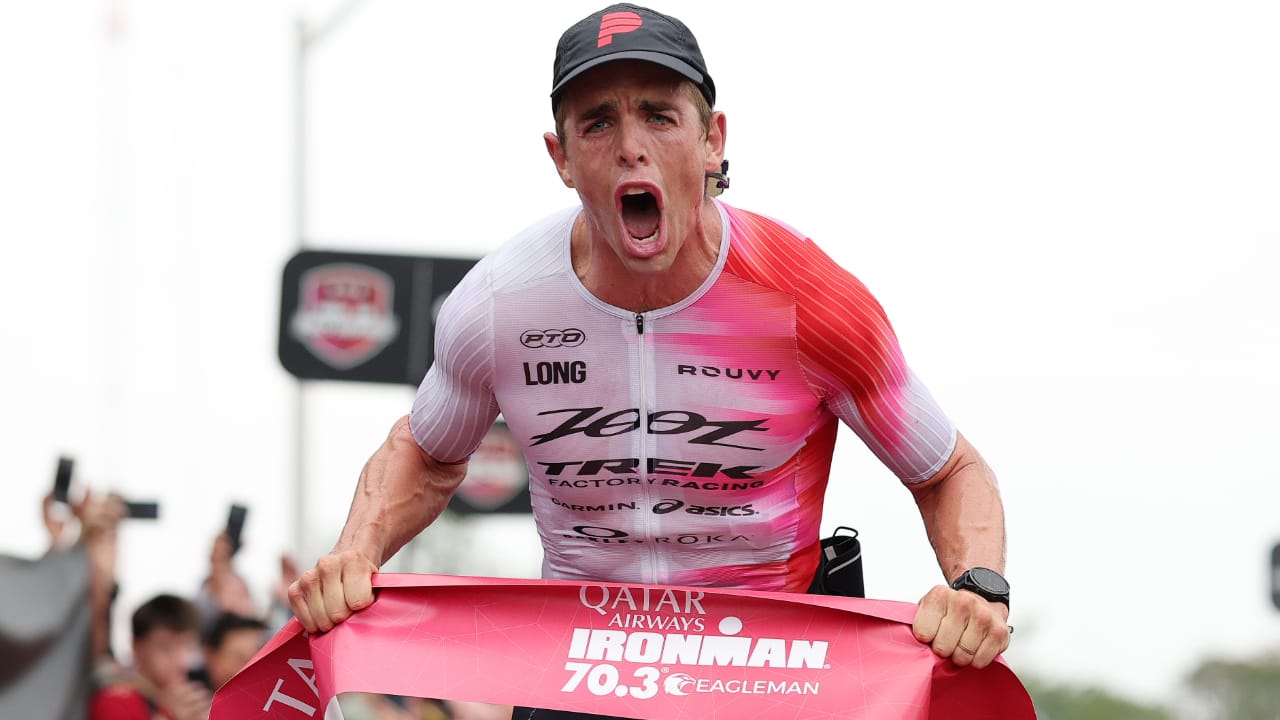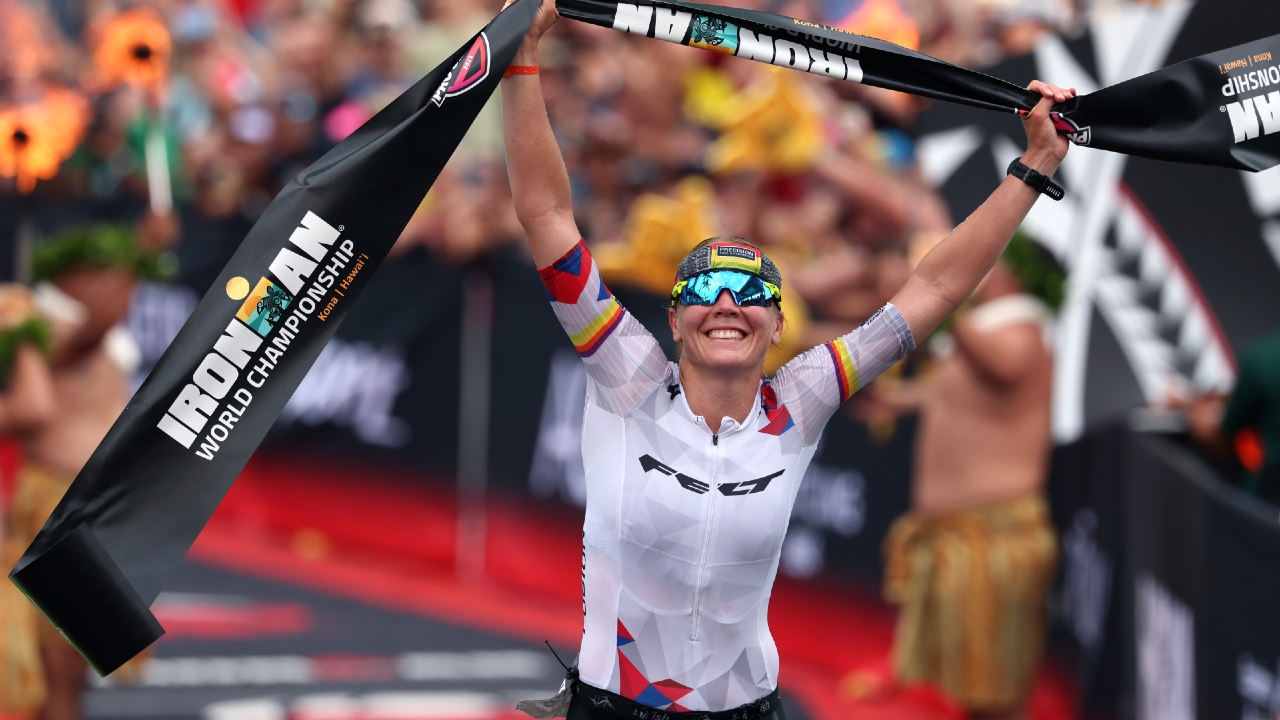No stranger to pushing herself to the limit, British Army officer Rosie Wild will make her pro debut this weekend at Challenge Gran Canaria. A recipient of the Sword of Honour during her time at the Royal Military Academy Sandhurst, Wild made history in 2020 when she became the first woman to pass the demanding Parachute Regiment entry test.
Of course, Wild isn’t the first triathlon star to come out of the British Army – with Kat Matthews starting her journey to the PRO triathlon ranks during her time as an army physiotherapist. Ahead of the race on Saturday, Wild spoke to TRI247 about how she got started in triathlon, her military background, and why the Army is a great environment for people with ambitions in sport.
From Riyadh to Gran Canaria
Recounting her first triathlon experience, Wild did her first race whilst living in the Middle East, where she quickly progressed from racing a local aquathlon to competing at a Challenge event.
“I did my first triathlon when I was living in Saudi Arabia. I was waiting to join the Army as I had been delayed by three knee operations, and I wasn’t able to run. I saw a poster for a very small aquathlon in a local compound and so went along.
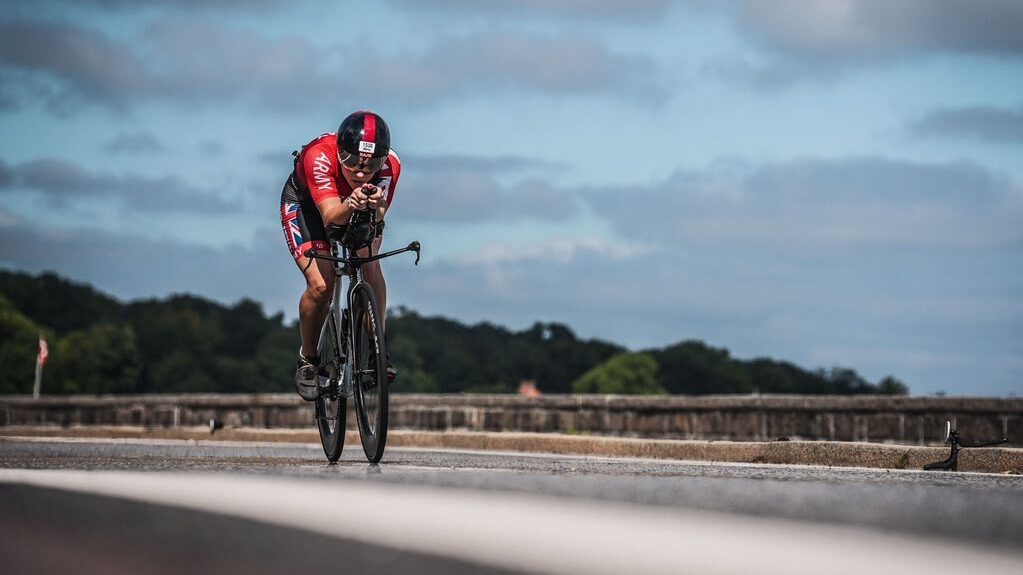
“From there, the friendliness and inclusiveness of the Riyadh Triathletes meant that I kept coming back. The races progressively got longer, starting from a triathlon where I borrowed a bike and rode in trainers, until the end of year when we all travelled to do Challenge Bahrain.
“I then took a very long hiatus (over 3 years) where I joined the Army, went through training and settled into the new job, before then plucking up the courage to join the Army Triathlon Association.”
Balancing the demands of work and training
With eight years of experience in the forces, Wild admits that training does have to come second to her profession, as above all else she is a soldier first and foremost.
“Ultimately [balancing training and work] it boils down to one thing; soldier first. We are soldiers first, and that is what we train to be and that is what we strive to deliver.
“That may mean a six week exercise in a woodblock in Northumberland where you don’t see a pair of trainers and you certainly don’t see fresh food. That may mean a 6 month deployment where you might be able to train, but the training goals are skewed towards you role and mission.
“At the simplest day-to-day level, that means being at every single one of your Regimental PT sessions, with 20kg on your back and a rifle ready for a TAB, or in the gym with heavy weights and explosive power training.
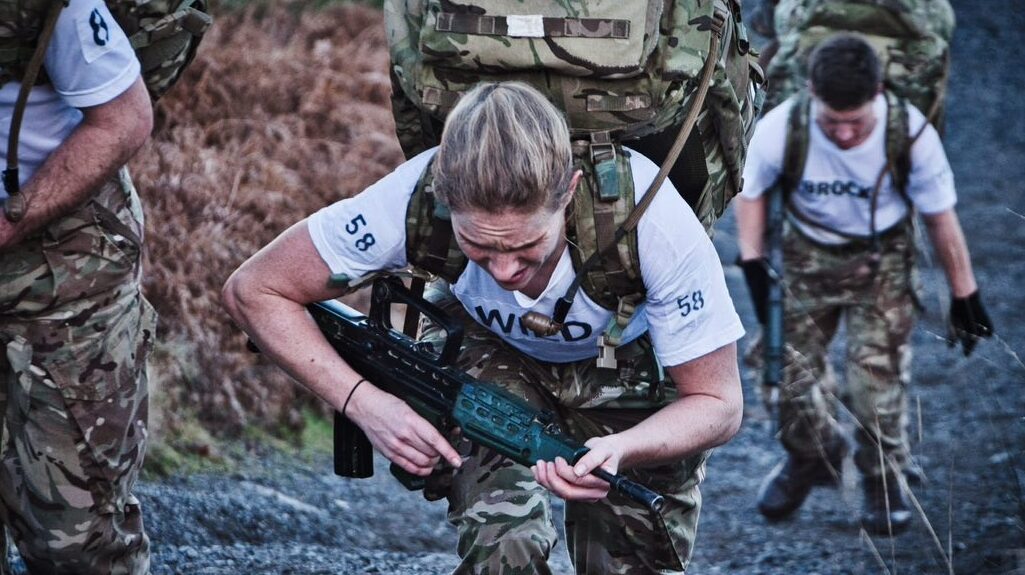
“It is one of the most important aspects of Army Sport and Inter Service competitions; our team and our competitors have faced, are facing, or will face, a huge percentage of their month being absorbed by the needs of the Army/RAF/RN.
“It is a choice that we made to give our time to the Army, but Army Sport gives us the opportunity to find something outside of the world of tactics and doctrine.”
“Our stakes are ultimately not losing podiums but losing lives”
Detailing how her work-centric balance benefits her in training and racing, Wild highlights the perspective gained by working in such a profession, one that makes her relish the hard work required to succeed in sport.
“For me and from my personal experiences, I believe that as I have moved further through the Army I have changed and transformed my attitude and approach to ‘challenges’. The Army encourages and promotes a ‘safe to fail’ environment.
“Of course we train not to fail, we understand risk – our stakes are ultimately not losing podiums but losing lives – but that doesn’t mean that we get it right the first, or second time, in training.
“The only way an athlete can actually push themselves to their limit is discovering what their limit is in the first place.”
“I was on P Company, one of the notoriously most difficult and elite physical selection courses the Army has, knowing that no woman had ever passed it, knowing that less than 30% of men pass it, but turning up and facing each day willing and ready to find my limit. Excited at the prospect of “failing”.
“So when I am training or racing, I know full well that I am not the best athlete there is, I know there is going to be a point of failure which could see me coming 2nd, 22nd or (more likely) 222nd, but the fun and the fulfilment come from chasing that limit, and learning and being prepared to go again.”
Challenge Gran Canaria and growing as an athlete
Coached by Sam Proctor, who also trains Miami T100 winner India Lee, Wild said that she has experienced a range of emotions ahead of making her pro debut.
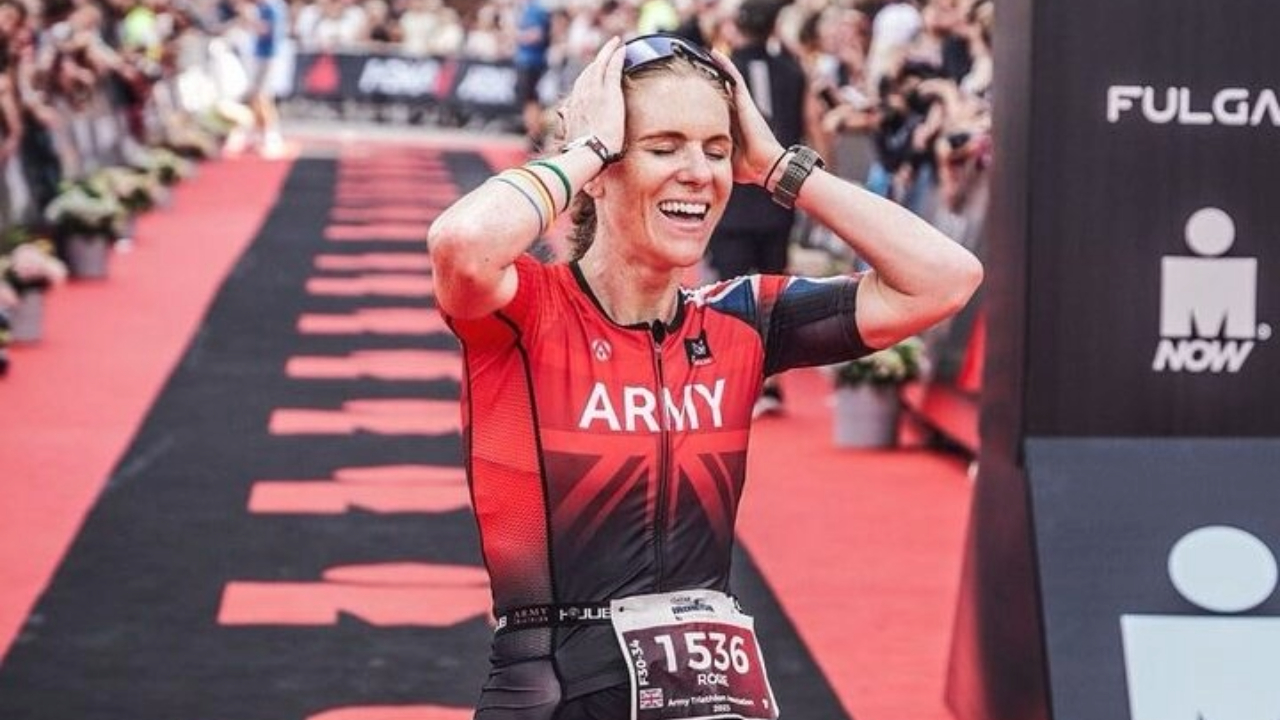
“I am incredibly excited, and apprehensive, and definitely curious. The excitement is about being surrounded by the best athletes in the world, and toeing the line with the great and glorious, watching them effortlessly swim off into the sun ahead of me!
“I’m apprehensive because I train mostly alone, and my confidence in where I stand amongst the giants is very low, but I switch back to excitement at just being around that talent and product of years of dedication and high performance.
“I am curious just to watch myself grow as an athlete, Sam Proctor has coached me since the start of March and it’s the first time I have properly followed a programme and coach religiously, and it’s been totally new ground and perhaps not on Saturday, perhaps not for a while, but I am so curious to see what the impact and outcome will be of it all.”
Finally, on why she chose to race in Gran Canaria, the Brit explained that she received strong recommendations from fellow athletes and believes it will be a great place to learn and gain experience.
“I chose Gran Canaria because it was recommended to me by so many athletes! The Canary Islands can be very unforgiving, and that’s where we learn. I suppose it is in a nice roundabout way that my first ever official triathlon was at a Challenge event (Bahrain), and now my first ever pro triathlon can be at one too.”







![Caroline Livesey wins the first ever Scottish National Gravel Championships in August 2025. [Photo credit: Outsider Events]](https://www.tri247.com/wp-content/uploads/2025/11/Caroline-Livesey-scots-national1.jpg)
